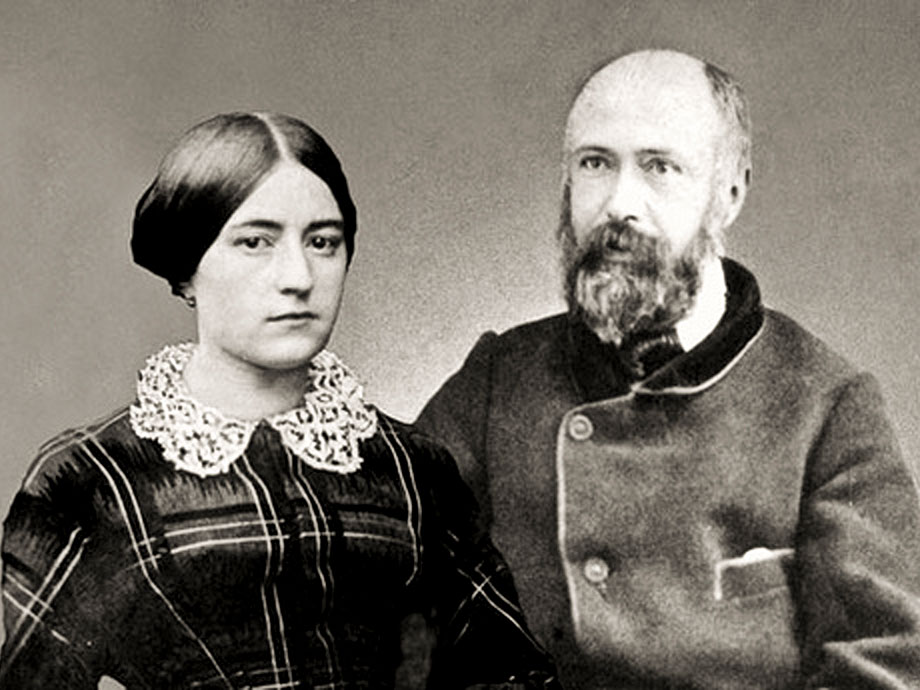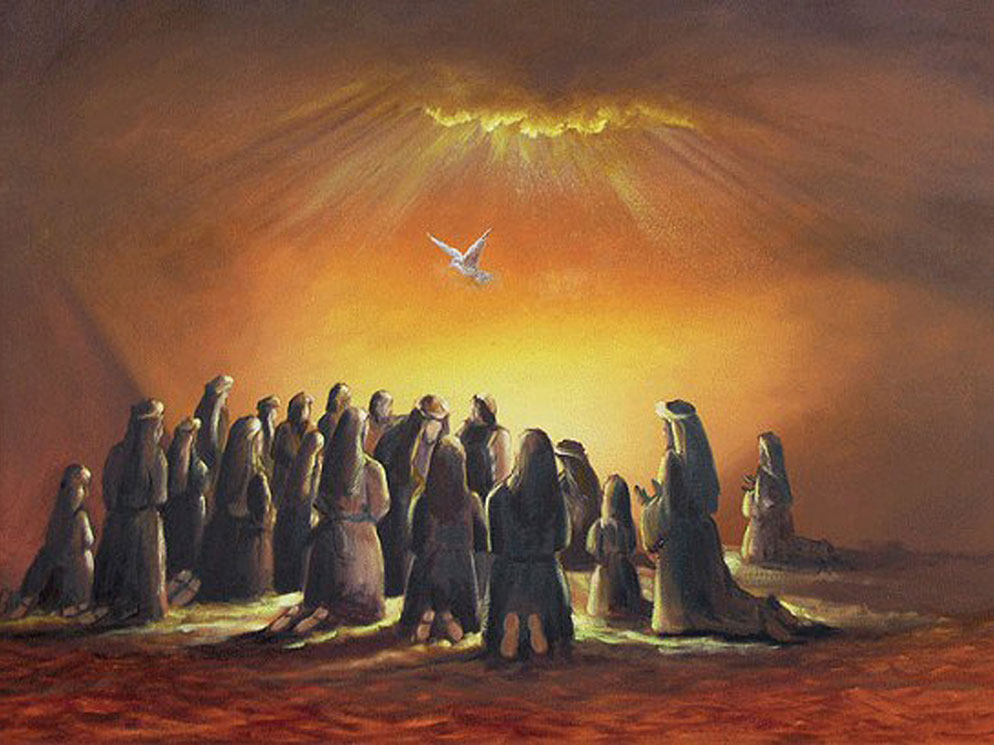READ
Browse past isues
DONATE
Help the mission
SHOP
Support the mission
CONTACT
Get in touch
Browse past isues
Help the mission
Support the mission
Get in touch


“For we are indeed His offspring” – Read Acts 17:16-34


Louis and Zelie Martin, St. Therese of the Child Jesus’ parents, are the second couple to reach proclaimed holiness together. The Martins faced the normal challenges and vicissitudes of daily life: earning a living, educating the children, struggling with economic and political uncertainties. They faced the mystery of suffering as 4 of their 9 children died at an early age. Zelie herself died of inoperable breast cancer at age 46 when Therese, the youngest child, was only 4 years old. As a close-knit family, they bore these trials with fervent faith and intense love. Louis Martin was then left alone to raise his 5 daughters. He took 3 of them to the Carmel and introduced them to a life of prayer. The other 2 daughters joined after his death. St.Therese once wrote to her missionary friend Maurice Belliere: “God has given me a father and a mother more worthy of heaven than of earth.”


Proclaiming the Gospel message is not as simple as picking up a Bible, reading it aloud, and preaching it to those who want to listen. It also entails a change of heart, a radical transformation from the old ways to a newness in Christ. Such power to transform, however, only comes if we allow the Word of our Lord, despite its radical demands, to touch and permeate through our very souls.


With further advances in treatment techniques and counseling and rethinking of theological premises, hospitals’ pastoral care becomes even more critical in the lives of patients and families. Is pastoral care relevant in the contemporary scene? Absolutely!


As part of his Petrine duty, Pope Francis offers his first Apostolic Exhortation, Evangelii Gaudium, a reflection on the propositions made during the 13th Ordinary General Assembly of the Synod of Bishops held in Rome last 7-28 October 2012, with the theme “The New Evangelization for the Transmission of the Christian Faith.” Evangelii Gaudium has six parts: an introduction, 5 chapters,
and a concluding section within the 5th chapter. What is curious in the document is the mention of the Holy Spirit, whose Person and Mission in the light of spreading the Good News of salvation in today’s society, 77 times. As it were, the Pope is encouraging Christians to hinge their evangelizing mission on the Person of the Holy Spirit, and become Spirit-filled evangelizers.


The Catholic Church asserts that the Gospel and the deposit of faith are constants; they do not change with the passing of time. However, the Church also holds that the teachings of Christ are best interpreted, received, and shared if one considers the current social, cultural, and political realities of the human situation, humanity’s ups and downs, the “signs of the times.” It is with such clear attention to these “signs” that the Holy Father, in his year-old Apostolic Exhortation, Evangelii Gaudium, continually exhorts us to better understand the contemporary demands of the Gospel.


Joy has always been a key word and a main idea in Scriptures and Church teachings. But it is often reduced to a dictionary definition because it is taken for granted. The true meaning of joy, however, is ever so intricately woven into the Gospel narratives, and can only be discovered in Him for whom the Gospels were written.


Global violence is growing. While we are not facing the prospect of large-scale wars, there are many deadly conflicts that are killing, wounding, and displacing millions of people around the world. These are ethnic conflicts and religious wars between sects, tribes and indigenous rebels. What possible belief and value is universal enough to appeal to all sides and groups and help to end the conflicts?


After news about the violence perpetrated by the Islamic State in Iraq and Syria spread all over the world, many religious and non-government organizations pressured nations to act aggressively to neutralize the jihadist group. Despite being the subject of persecution, however, Christians, particularly the Catholic Church, have continually emphasized the need for a peaceful intervention to the crisis, no matter how brutal it has become.


As many as 1.4 million people could be infected with Ebola by mid-January 2015 if efforts to quarantine the epidemic aren’t taken immediately, according to predictive models released by the Centers for Disease Control and Prevention (CDC) recently.
